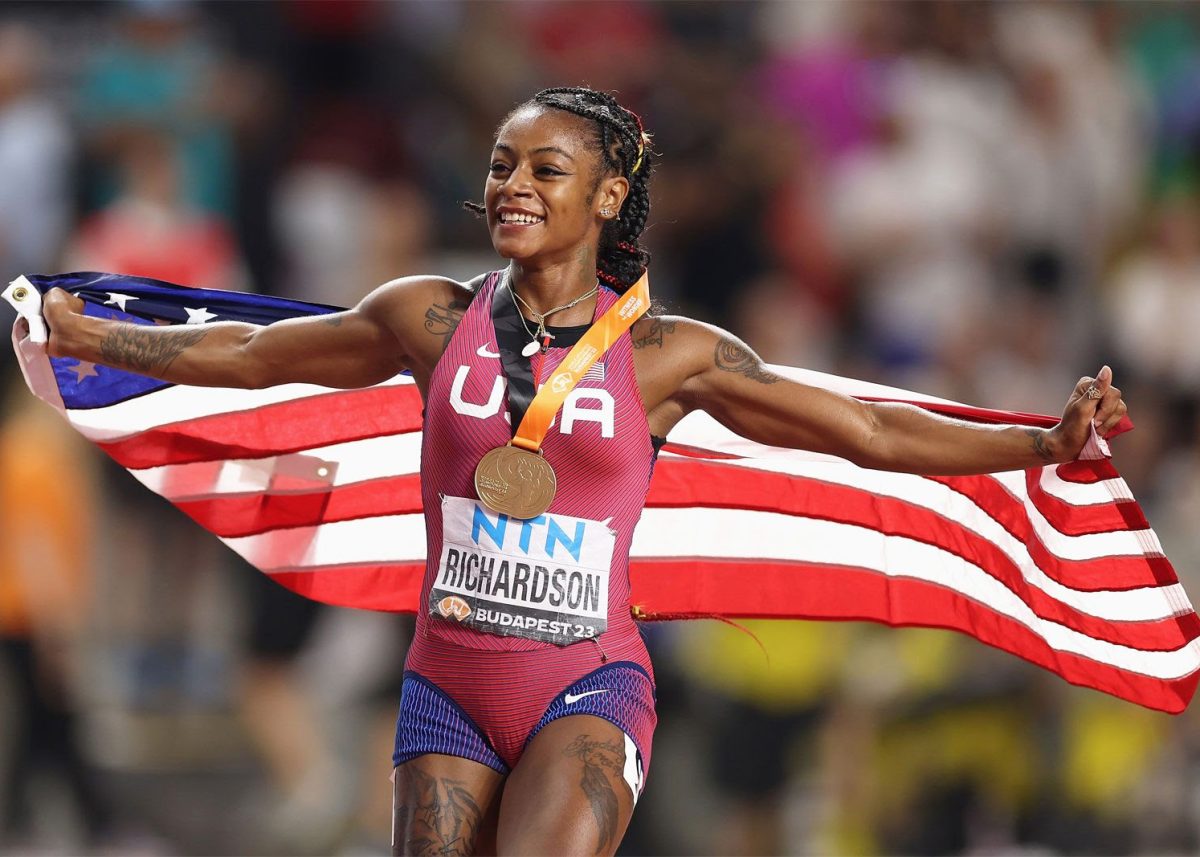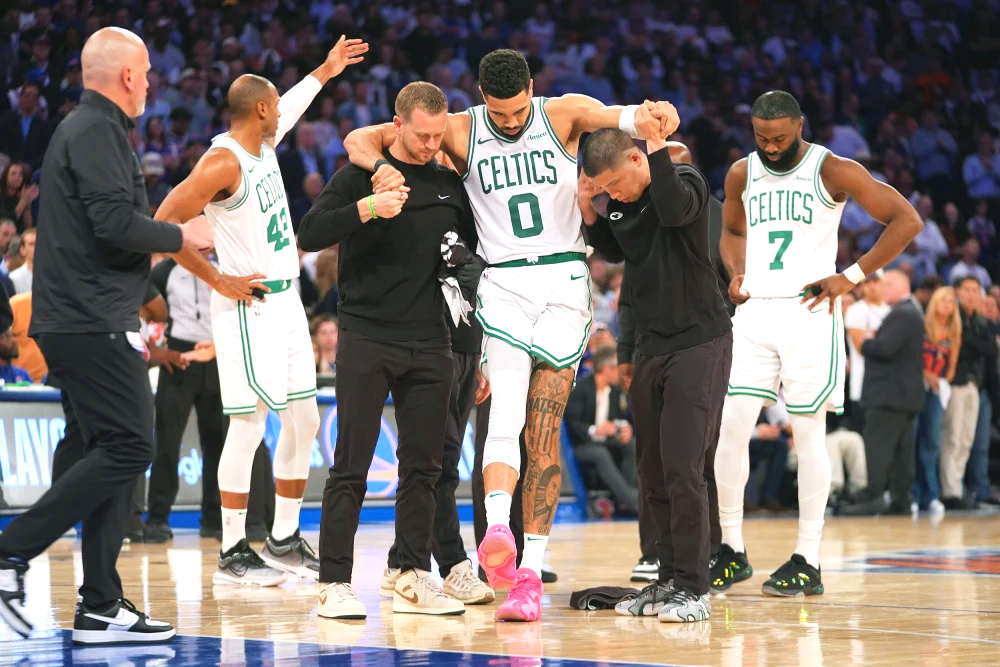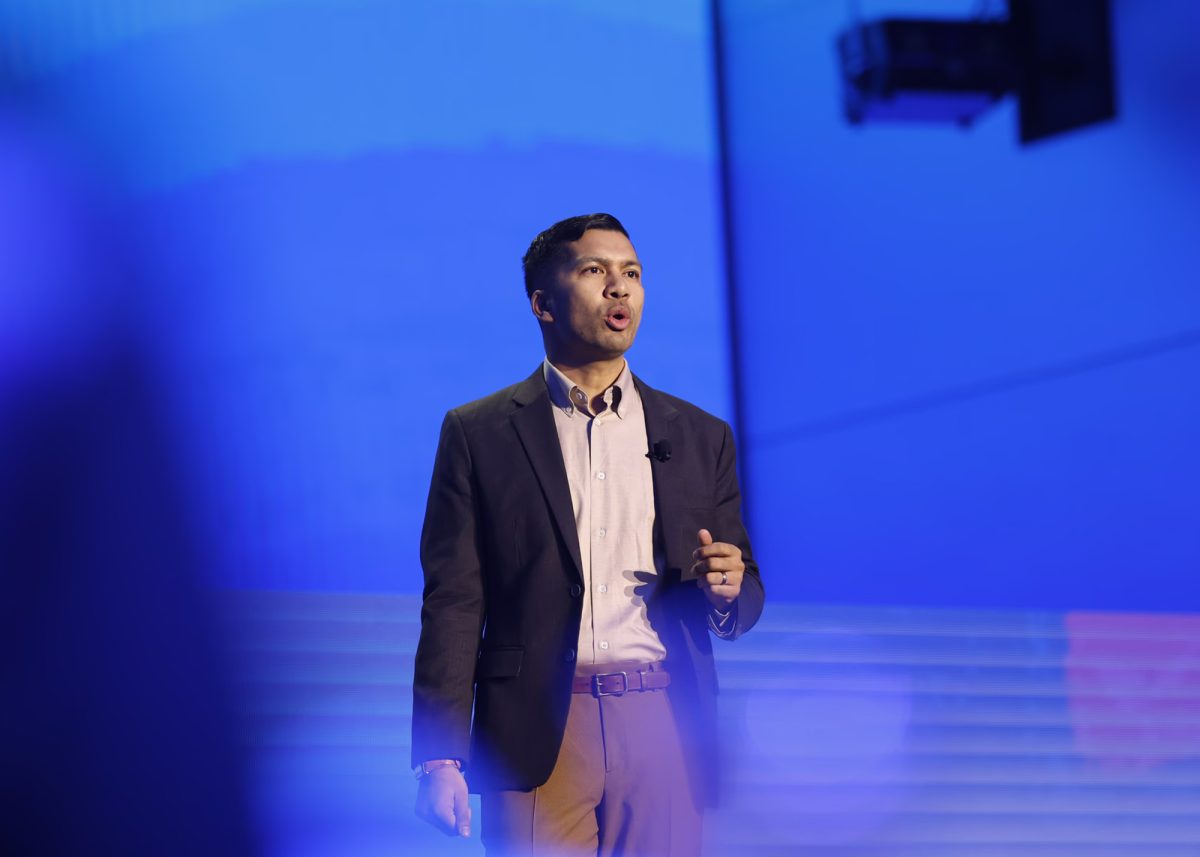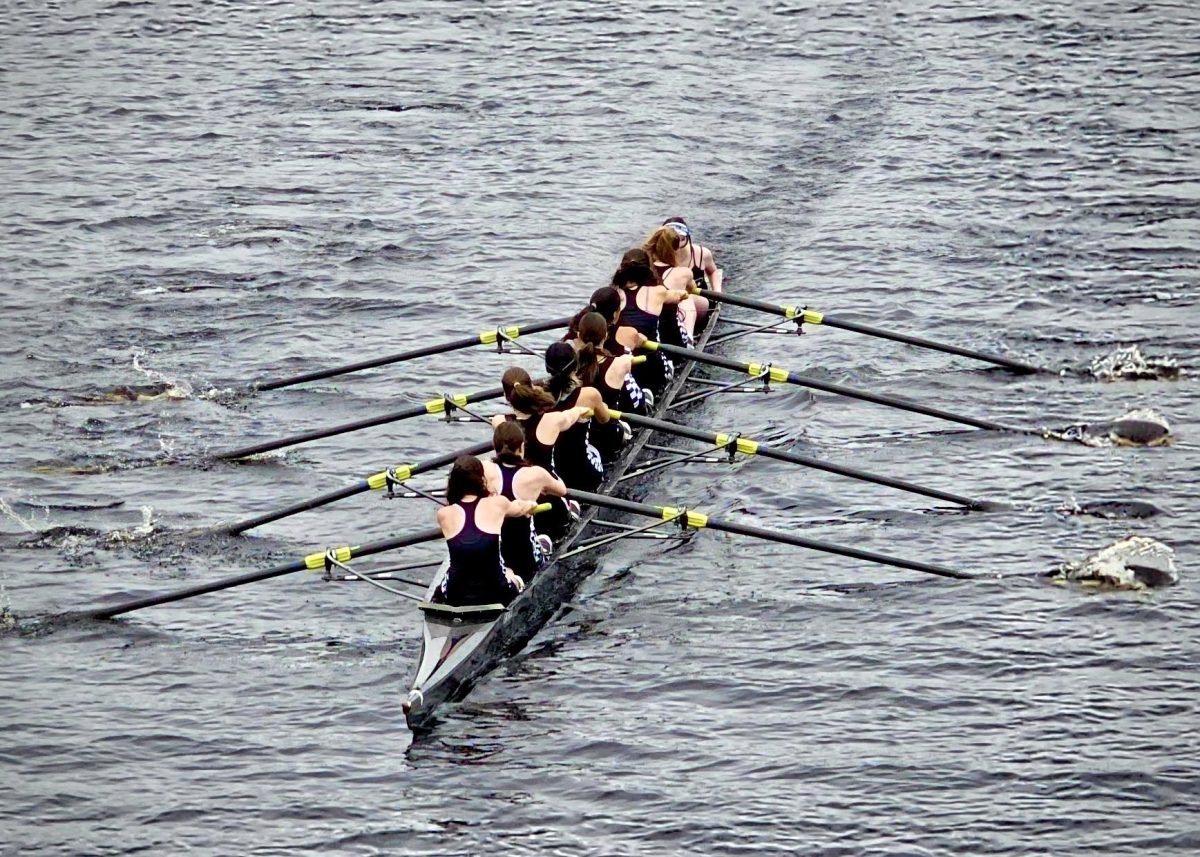Gender stereotypes are apparent in schools, industries, workplaces and even on the playing field. Female athletes at Boston Latin School are not immune to feeling as though they need to look a certain way when they are playing sports.
Benny Pierre Louis (II), a star hurdler and long jumper on the BLS track and field team is a point and case. “One of the most prominent beauty standards I see in track and field is always having a good hair day.” She says, “For all women, it’s expected that when we run, our hair should be flowing in the wind and we should look at ease, but in reality, we are in a physically taxing situation where our hair is the last thing we are worried about.”
Pierre Louis is one of many female athletes who chooses to wear makeup and get her hair done before competitions. These cosmetics are not to adhere to beauty standards or attract the male gaze, rather, she applies makeup before races to make herself feel powerful.
Despite the many strides of 21st-century feminism, beauty standards in sports — the expectation that women must look beautiful even in the heat of competition — remain as a barrier for female athletes.
What women look like when they’re playing their sport routinely overshadows their ability on the field or court. Women feel pressure to be feminine and beautiful while also being athletic and strong. In an ESPNW survey of 201 Division I Female Collegiate Athletes, 68 percent reported feeling a pressure to be pretty and 48 percent wear makeup when they compete.
The sports world has several high-profile women who glam up before they compete due to the many standards surrounding women in the sports industry. Athletes such as Sha’Carri Richardson, Angel Reese and Venus Williams all use their appearance as a means of personal expression, however, their efforts to beautify themselves are often criticized and perceived as unnecessary, overshadowing their contributions to their teams.
BLS track coach Emanuel Kalamu, a former track and field collegiate athlete himself, discusses the domination Sha’Carri Richardson displays on the track. He says, “I believe that through her self-expression, she has gained confidence as a sprinter that pushes her through races and puts her on top.” Despite Richardson’s success, her exuberant appearance often causes people to view with disdain.
As a coach of a sport that is almost completely individual, Kalamu also believes that “it’s important to differentiate yourself from the crowd. The best way to do so is by creating a persona. A way to be identified and stick out. In an individual sport, you are performing for the crowd.” This presents contrasting social constructs that confine female athletes.
Sophia Ginsburg (II), a three-sport varsity athlete, highlights the double standard for women in sports by saying, “In the athletic world, I feel like it is usually frowned upon for women and girls to wear too much makeup while they are playing a sport.”
Women and girls, even in high school, are held to impossible standards. While competing in sports they are expected to look “pretty” and “interesting.” They are also, however, expected to prioritize their performance and contribution to the team over their looks. In brief, no matter which choice female athletes make, they will always face some form of criticism.







